Maritime Risk Symposium: Full Program Released
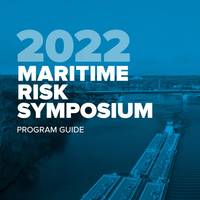
The 2022 Maritime Risk Symposium (MRS), scheduled to be held Nov. 15-17, 2022, hosted by Argonne National Laboratory at the Argonne campus in Lemont, Illinois, recently unveiled the full conference program, packed with experts with insights on the challenges facing the inland waterway systems.Click here to read the fulll program for MRS 2022MRS is an annual international event focused on risks involving the global maritime transportation system (MTS). For the MRS, the U.S. Coast Guard partners with the sponsor…
Maritime Risk Symposium 2022: The Importance of Inland Systems to the MTS
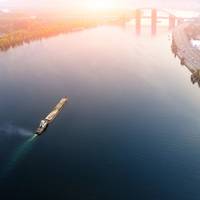
The 2022 Maritime Risk Symposium (MRS) is scheduled to be held Nov. 15-17, 2022, hosted by Argonne National Laboratory at the Argonne campus in Lemont, Illinois. MRS is an annual international event focused on risks involving the global maritime transportation system (MTS). For the MRS, the U.S. Coast Guard partners with the sponsor, the Transportation Research Board of the National Academies of Science, Engineering, and Medicine, and the hosting agency. MRS began in 2011 and has grown in size, scope and interest. The MRS event will be followed by the U.S.
Maritime Risk Symposium 2022: The Importance of Inland Systems to the MTS
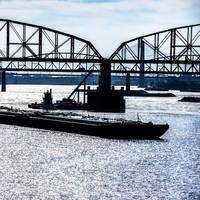
The theme of Maritime Risk Symposium (MRS) 2022 is “The Importance of Inland Systems to the MTS.” The global MTS consists of numerous inland networks that connect the major transnational and inland ports. The United States has more than 25,000 miles of navigable waters, which can carry around 630 million tons of cargo annually. Barges carry the bulk of the commodities on the inland river networks while freighters carry the commodities on the Great Lakes and Saint Lawrence Seaway. About 60 percent of the U.S. farm exports travel through inland waterways.
No Need to Change Tug Workers’ Hours -Study
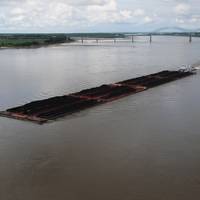
The American Waterways Operators (AWO), the national trade association for the tugboat, towboat and barge industry, hailed a study conducted for the Transportation Research Board of the National Academies of Sciences, Engineering and Medicine which concludes that “[t]here is currently no scientific data to support […] a change in hours of service” for towing vessel crewmembers. Instead of regulatory changes to hours of service, which “are not likely to be the most effective way to increase sleep durations and improve sleep quality…
Jenkins Elected Chairman of CG Foundation Board
The Coast Guard Foundation, a non-profit organization committed to the education and welfare of Coast Guard members and their families, announced today that William E. Jenkins has assumed the role of chairman of the board after being elected at a meeting of the directors and trustees on March 13. Joining the Foundation's board in 2009, Jenkins served as treasurer and vice-chairman prior to being elected board chair. Jenkins is a director on the Board of American Bureau of Shipping, Inc., a trustee of Webb Institute, and was president and CEO of ExxonMobil affiliates providing worldwide shipping and marine transportation when he retired from ExxonMobil in 2012.
Aleutian Islands Gets Shipping Protection Zone
The International Maritime Organization (IMO) approved protective buffer zones (“Areas to be Avoided”) around Alaska’s Aleutian Islands, approximately 10 years after a shipping disaster occurred off its coasts. In December 2004, the M/V Selendang Ayu foundered off the Aleutians amidst severe weather and was blown to shore, eventually breaking into two pieces and causing more than 300,000 gallons of toxic heavy fuel oil to spill into pristine marine waters and resulted in the deaths of six crew members. Shipping in and around the Aleutian Islands is significant. In 2012, nearly 2,000 individual vessels made more than 4,600 transits through Unimak Pass at the eastern end of the island chain.
Aleutian Islands Risk Assessment Update
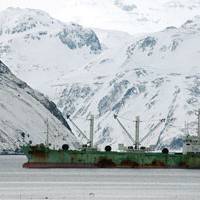
The Aleutian Islands Risk Assessment management team selected Nuka Research and Planning Group, LLC Feb. As the facilitator Nuke Research will support the team's ongoing Aleutian Islands Risk Assessment with a key role of assembling and facilitating advisory panel activities. The contract is currently being finalized. Nuka Research is a small business located in Alaska with extensive experience in facilitation and maritime issues in the Aleutian Islands. As the facilitator of the advisory panel…
Risk of Accidents in the Aleutian Islands
The Transportation Research Board of the National Academies issued a notice stating that its Special Report 293 – “Risk of Vessels Accidents and Spills in the Aleutian Islands: Designing a Comprehensive Risk Assessment” has been published. The report recommends that a structured risk assessment be performed in two phases: (1) a preliminary risk assessment; and (2) a focused risk assessment. In the interim, it recommends: (a) that the Coast Guard expand the AIS tracking network along the Aleutian chain and covering the southern North Pacific Great Circle Route; (b) that the Coast Guard and the State of Alaska investigate funding and mechanisms for possible stationing of an Aleutian recue tug…












